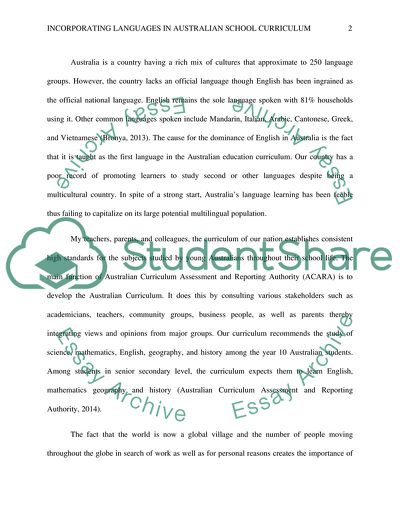Cite this document
(The Cause for the Dominance of English in Australia Case Study Example | Topics and Well Written Essays - 3500 words, n.d.)
The Cause for the Dominance of English in Australia Case Study Example | Topics and Well Written Essays - 3500 words. https://studentshare.org/education/1819020-why-should-the-learning-of-languages-be-part-of-the-school-curriculum
The Cause for the Dominance of English in Australia Case Study Example | Topics and Well Written Essays - 3500 words. https://studentshare.org/education/1819020-why-should-the-learning-of-languages-be-part-of-the-school-curriculum
(The Cause for the Dominance of English in Australia Case Study Example | Topics and Well Written Essays - 3500 Words)
The Cause for the Dominance of English in Australia Case Study Example | Topics and Well Written Essays - 3500 Words. https://studentshare.org/education/1819020-why-should-the-learning-of-languages-be-part-of-the-school-curriculum.
The Cause for the Dominance of English in Australia Case Study Example | Topics and Well Written Essays - 3500 Words. https://studentshare.org/education/1819020-why-should-the-learning-of-languages-be-part-of-the-school-curriculum.
“The Cause for the Dominance of English in Australia Case Study Example | Topics and Well Written Essays - 3500 Words”. https://studentshare.org/education/1819020-why-should-the-learning-of-languages-be-part-of-the-school-curriculum.


